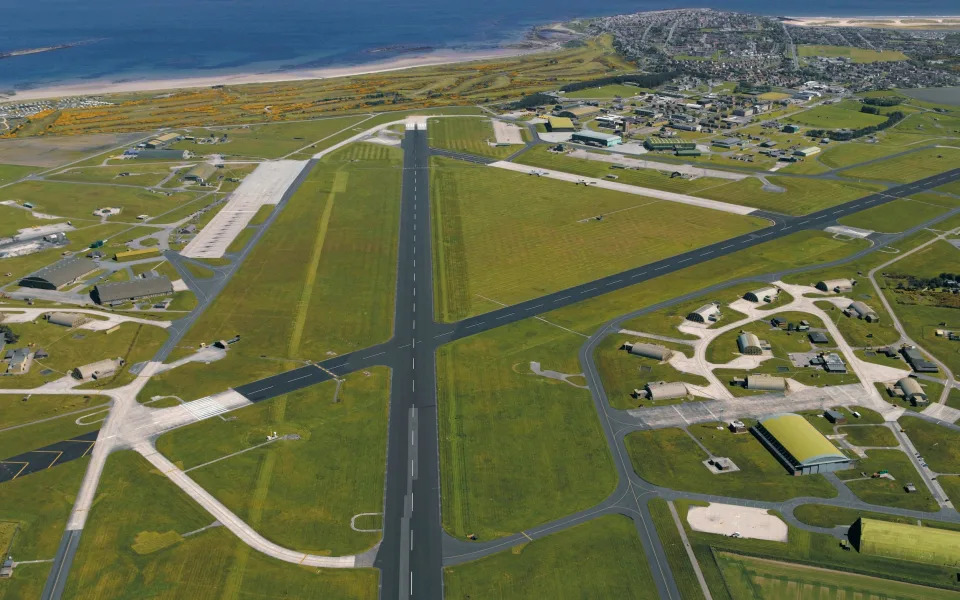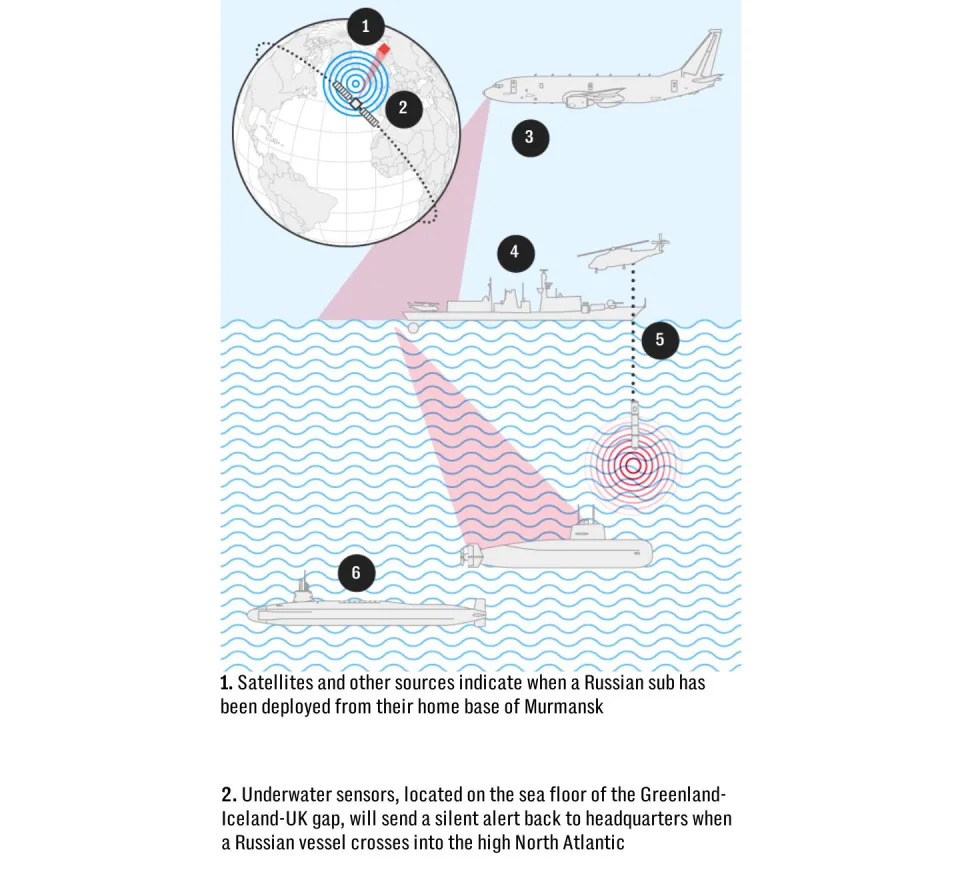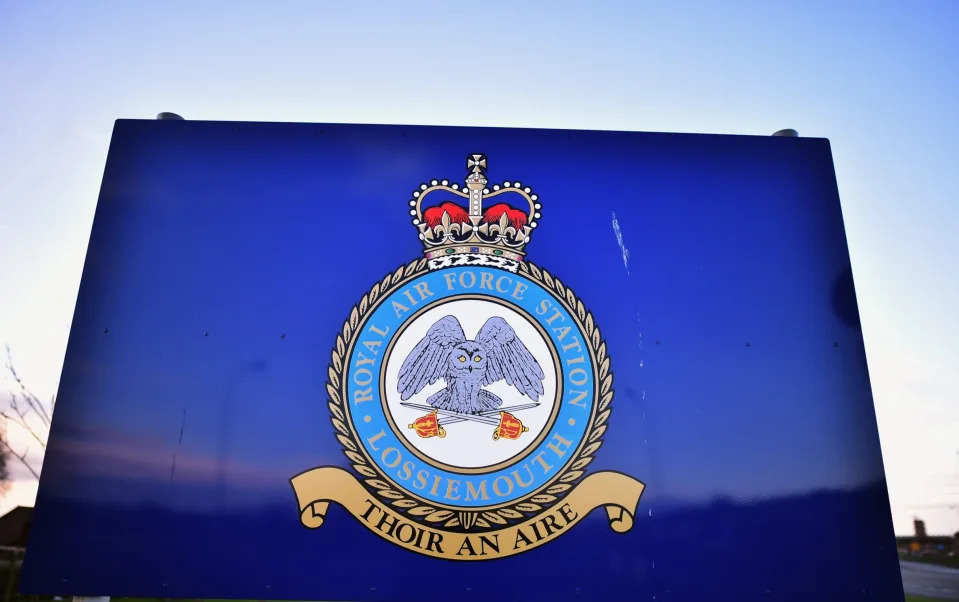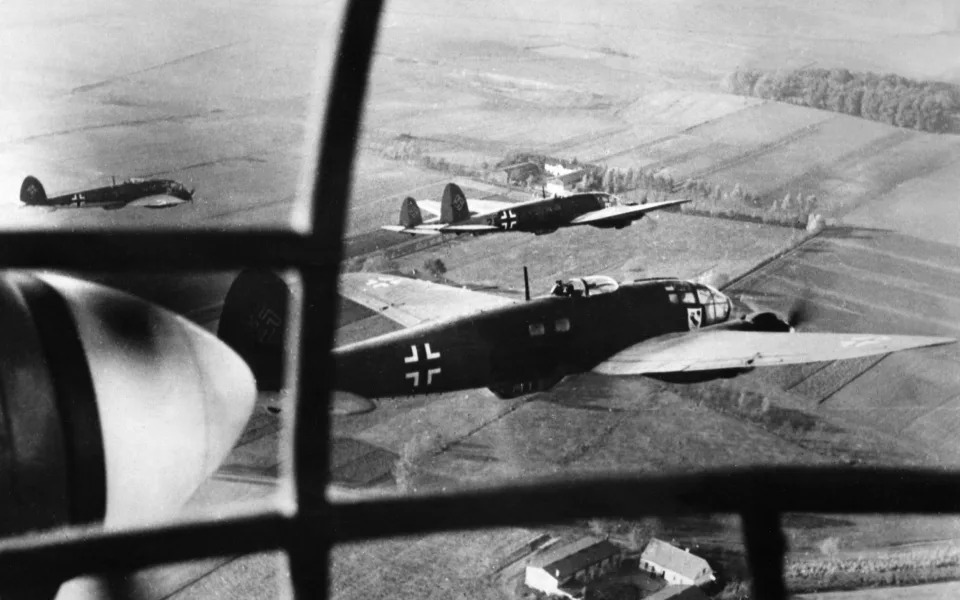
The MOD is investing £3bn in nine P-8A Poseidon jets to enhance tracking of maritime targets - Cpl Lee Mathews/RAF
The Telegraph: German submarine-hunting planes are to be based in Britain for the first time, to counter the threat from Russia.
Flying from RAF Lossiemouth in Scotland, the P-8 Poseidons will patrol the North Atlantic and track any Russian submarines passing through the region.
The landmark deal between the UK and Germany, known as the Trinity House Agreement, will be signed by John Healey, the Defence Secretary, and Boris Pistorius, his German counterpart, in London on Wednesday.
Earlier this year, General Sir Roly Walker, the head of the Army, warned Britain must be ready to fight a major war in three years, as he stressed Russia would seek revenge on the West for aiding Ukraine.
The Chief of the General Staff cautioned that in the second half of this decade, Russia, China and Iran could unite to put the West under pressure and achieve their individual goals.

Lossiemouth in Scotland is one of the RAF’s main fast jet bases - KEN WHITCOMBE
Defence sources stressed the new operation, which will work across the land, sea and air, will prepare Nato forces in the event of war with Russia.
“The more we work together the easier, it becomes when we need to do so in high-end conflict,” the sources said.
While Europe’s two biggest defence spenders have worked together on air exercises over the years, this is the first time submarine hunters will be based in the UK for actual operations.
The planes will be operated by the German Navy, not the German Air Force.
The only German military aircraft to have been based in the UK previously were the Tornados of the Tri-National Tornado Training Establishment, a multinational air unit based at RAF Cottesmore in Rutland between 1981 and 1999.

Meanwhile, the US regularly deploys strategic bombers to the UK to work with its Nato allies along the eastern flank.
“To do this on operations makes it more visceral and better for all of Nato,” the source added.
“It is proving we can operate alongside our Nato nations and showing a united front to our enemies. You cannot avoid us, we are as one.”
As well as hunting Russian subs, the two countries will work together to rapidly develop brand-new deep-strike weapons that can travel further and with more precision than current systems, including Storm Shadow.
The agreement will also see a new artillery gun barrel factory opened in the UK, supporting more than 400 jobs and give nearly half a billion-pound boost to the British economy. The barrels, the first to be made in the UK in 10 years, are expected to be produced by 2027.

The Lossiemouth RAF base is also home to Tornado and Typhoon squadrons - JEFF J MITCHELL/GETTY
Meanwhile, the allies will also work together to protect critical underwater infrastructure in the North Sea, including deep-sea cables.
Mr Healey said the pact would strengthen Europe’s security.
“It secures unprecedented levels of new co-operation with the German Armed Forces and industry, bringing benefits to our shared security and prosperity, protecting our shared values and boosting our defence industrial bases,” he said.
Mr Pistorius warned that security in Europe should not be taken for granted.
He said: “Russia is waging war against Ukraine, it is increasing its weapons production immensely and has repeatedly launched hybrid attacks on our partners in Eastern Europe.
“With the Trinity House Agreement, we are showing that the Nato allies have recognised what these times require and are determined to improve their deterrence and defence capabilities.
“As it lays the foundation for future projects, the Trinity House Agreement is an important contribution to this.”

Heinkel He 111 aircraft on a mission against England in 1940 - ULLSTEIN BILD
Earlier this year, Mr Healey visited Berlin to begin negotiations for a wider UK-Germany treaty pledged by Sir Keir Starmer and Olaf Scholz, the German chancellor.
It comes after Rachel Reeves, the Chancellor, announced that the UK is to give Ukraine a £2.26 billion loan to be paid back using profits on Russian assets frozen after Vladimir Putin’s invasion of the country.
However, ahead of next week’s autumn budget, the Chancellor was unable to say when the UK would commit to spending 2.5 per cent of GDP on defence.
It currently spends 2.3 per cent and a Strategic Review of Defence has been launched to assess how best the UK’s military can fight in an evolving world.
Other measures will include co-operation to strengthen Nato’s eastern flank and extra support for Ukraine, including work on equipping German Sea King helicopters with modern missile systems for use by Kyiv’s forces and a long-term commitment to manufacturing Boxer armoured vehicles
It will also expand complex weapons development in the UK, such as Sting Ray Torpedoes procurement.
New drones which can work alongside fighter jets will also be developed.












Leave a review